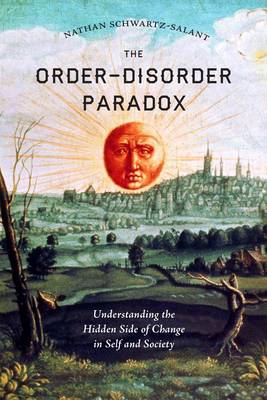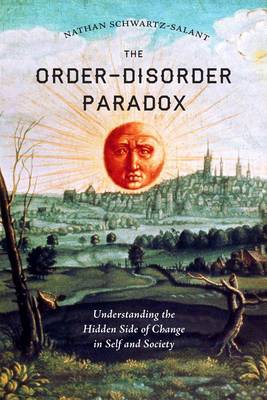
Bedankt voor het vertrouwen het afgelopen jaar! Om jou te bedanken bieden we GRATIS verzending (in België) aan op alles gedurende de hele maand januari.
- Afhalen na 1 uur in een winkel met voorraad
- In januari gratis thuislevering in België
- Ruim aanbod met 7 miljoen producten
Bedankt voor het vertrouwen het afgelopen jaar! Om jou te bedanken bieden we GRATIS verzending (in België) aan op alles gedurende de hele maand januari.
- Afhalen na 1 uur in een winkel met voorraad
- In januari gratis thuislevering in België
- Ruim aanbod met 7 miljoen producten
Zoeken
The Order-Disorder Paradox
Understanding the Hidden Side of Change in Self and Society
Nathan Schwartz-Salant
Paperback | Engels
€ 25,45
+ 50 punten
Omschrijving
Increasing order in a system also creates disorder: this seemingly paradoxical idea has deep roots in early cultures throughout the world, but it has been largely lost in our modern lives as we push for increasing systematization in our world and in our personal lives. Drawing on nearly five decades of research as well as forty-five years working as a psychoanalyst, Nathan Schwartz-Salant explains that, in a world where vast amounts of order are being created through the growing success of science and technology, the concomitant disorder is having devastating effects upon relationships, society, and the environment. As a Jungian analyst with training in the physical sciences, Schwartz-Salant is uniquely qualified to explore scientific conceptions of energy, information, and entropy alongside their mythical antecedents. He analyzes the possible effects of created disorder, including its negative consequences for the creator of the preceding order as well as its potentially transformative functions. With many examples of the interaction of order and disorder in everyday life and psychotherapy, The Order-Disorder Paradox makes new inroads into our understanding of the wide-ranging consequences of the order we create and its effects on others and the environment.
Specificaties
Betrokkenen
- Auteur(s):
- Uitgeverij:
Inhoud
- Aantal bladzijden:
- 176
- Taal:
- Engels
Eigenschappen
- Productcode (EAN):
- 9781623171162
- Verschijningsdatum:
- 11/04/2017
- Uitvoering:
- Paperback
- Formaat:
- Trade paperback (VS)
- Afmetingen:
- 152 mm x 229 mm
- Gewicht:
- 226 g

Alleen bij Standaard Boekhandel
+ 50 punten op je klantenkaart van Standaard Boekhandel
Beoordelingen
We publiceren alleen reviews die voldoen aan de voorwaarden voor reviews. Bekijk onze voorwaarden voor reviews.









